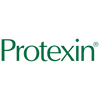Small changes, big impact
Pet owners make decisions every day that impact the planet. But did you know there are so many tiny changes you can make to become more eco-friendly?
Just remember, keeping your pet healthy and happy should always come first, so you should avoid making changes that could compromise this.
If you are trying to lead a more sustainable lifestyle as a pet owner, we’re here to help. Our Joii vets and nurses have provided five tips on how to become a sustainable pet owner and reduce your carbon pawprint, and also bust some myths along the way.
1. Eco-friendly dog walks
Exercise is an important part of a pet’s health and wellbeing. For dog owners, consider how often transport is being used for dog walks, like driving to the beach or dog park. If your dog is happy and confident being walked on a lead in different environments consider walking to a nearby place in the local area and give the transport a miss. Making small changes like this each week will significantly help to reduce carbon pawprints.
For some dog owners walking dogs on the lead, especially around other people, traffic or dogs can be stressful. If that’s the case for you, be sure to call a Joii nurse for some support.
2. Try biodegradable poop bags & cat litter
Choose biodegradable poop bags and always put these in the appropriate waste bins. Do not leave them in hedges or on branches as they can cause harm to other wildlife. For cats, look for biodegradable cat litters such as: papers, woods, or corn rather than clays or silica. Using a hooded litter tray will prevent scattering around the home.
It is important to know that cat and dog poo is not safe to compost, especially if planning to use that compost on fruit or vegetables. Their poo can contain parasites that can be passed on to humans. The same is true for flushing down the toilet; the waterways are not equipped to eliminate these parasites if flushed. It is best to safely bag and bin.
Tip: if using a spot-on flea treatment follow the recommended wait time before your pet swims in open water to protect any transfer to marine life.
3. Be mindful of your water usage
A quick and easy way to reduce the impact on the environment is to consider water usage when bathing pets. Keep bath times short and sweet. If your pet needs baths regularly for a medical reason, look for an alternative such as a mousse, spray, foams, or serums.
These will need to be specific for each pet's needs but can be used in-between bath times to help cut down on water usage, whilst keeping your pet’s skin healthy and smelling great. Talk to our vet nurses today if you need advice.
4. If your cat is a hunter...
Many cat owners worry about their cat hunting wildlife. The fact is the hunting instinct for cats is a natural behaviour and inevitable for cats with outdoor access. Research has shown that collars or bells used to prevent cats from hunting can negatively impact their welfare and cause a risk of injury. Collars are often needed for identification tags, medical messages or reflective purposes. When putting a collar on a cat, their safety must come first. This means choosing the correct fit, material, and clasp, to ensure you keep your cat safe.
It is best to ensure that all collars are quick release clasps. If you have a growing kitten check their collar daily to make sure it is not too tight. Whilst outdoor cats can not be stopped from hunting wildlife there are things that can be done to reduce it:
- Alter the times the cat is let out - keep them in at dawn and dusk when small creatures are most active. Make sure they have access to a litter tray.
- If you are attracting birds to the garden with a feeder or birdbath, make sure the bird table is high enough to prevent easy access for the cat. Have it on a pole which is difficult to climb, and place it away from bushes or other places where the cat may be able to reach it.
5. Health can play a huge part
There are lots of illnesses, diseases and parasites that are preventable for pets. Being on top of preventative health care such as flea and worming, vaccinations, and preventing hormone-related diseases with neutering, can all help to reduce your carbon pawprint.
Not only will strict and appropriate preventive health care plans reduce the risk of needing frequent trips to the vets, but it will also reduce your carbon impact. Treating preventable diseases or illness is essential but is a carbon costly process and generates a lot of plastic waste.
We're here if you need us
It might sound hard, but being aware and trying to make small changes every day can have a huge impact on wildlife and the environment.
Need more help? Download the Joii Pet Care app today for 24/7 online vet calls for £24.


























